Election updates for Kenya, Rwanda, and Senegal
A top Kenyan election official, Chris Msando, who served as acting director for information and communications technology at the Independent Election and Boundaries Commission (IEBC), was tortured and murdered over the weekend, an autopsy revealed this week. The Kenyan National Police Service stated that a special homicide team is investigating the murder while IEBC chair Wafula Chebukati appealed to the government to “provide security for all members of the IEBC for them to give Kenya free and fair elections.”
The killing of Msando follows another attack last Sunday, in which a gunman entered Deputy President William Ruto’s home (while Ruto and his family were away), injuring a police officer before being killed by police. These violent acts have heightened pre-existing public fears that the elections, scheduled for Tuesday, August 8, may prompt more violence, as experienced during the 2007 elections. Churches nationwide have called on the main candidates—President Uhuru Kenyatta and opposition leader Raila Odinga—to step forward and reassure Kenyans that the upcoming elections will be free from violence. Furthermore, poll observers from the AU, COMESA, the Commonwealth, the EAC, the EU, the U.S., and local civil society organizations, among other groups, are being deployed throughout Kenya to check the IEBC’s preparedness for the elections, monitor compliance with electoral laws, and observe the political and security environment.
(For more insight into the dynamics of next week’s elections in Kenya, see two blogs from Douglas L. Kivoi and Steven Nduvi of the Kenya Institute for Public Policy Research and Analysis (KIPPRA): Kenya’s election 2017: Unique concerns for a unique country and Kenya’s election 2017: Same concerns, different approaches.)
Meanwhile, Rwanda is voting for president today, Friday, August 4, with the main contender, incumbent President Paul Kagame of the Rwandan Patriotic Front (RPF), vying with the leader of the Democratic Green Party of Rwanda (DGPR) Frank Habineza and independent candidate Phillipe Mpayimana for the role. Polls close at 4:00 pm in Rwanda and the results are expected to be announced tonight or this weekend—although expectations of Kagame’s re-election are so high that he already called the election in his favor last month at his first campaign rally, according to the Associated Press.
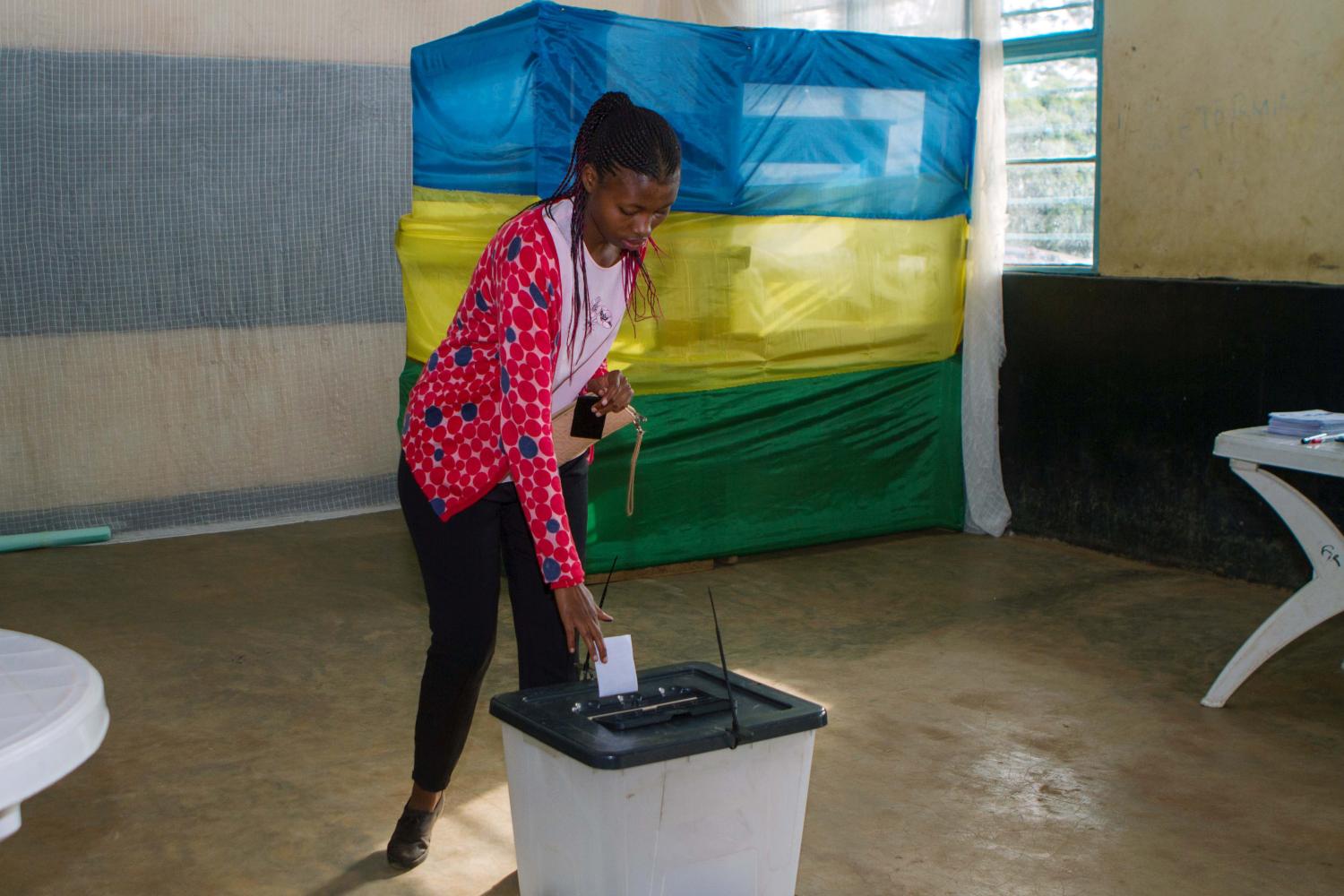
In Senegal, the ruling Benno Bokk Yakaar (BBY) party claimed victory in Sunday’s parliamentary elections although the vote was marred by irregularities, according to the opposition. The national electoral commission has not yet released the official results, but according to Prime Minister Mahammed Boun Abdallah Dionne, the BYY won all but three of the country’s electoral departments. Still, the two main opposition parties argue that abnormalities in the vote, particularly delays in issuing voting cards, selectively aimed to disenfranchise opposition supporters and skew the vote in favor of the BYY.
China officially opens its first international military base in Djibouti
On Tuesday, August 1, in Djibouti, China opened its first-ever overseas military base. Construction on the base, which will be used to resupply navy vessels participating in peacekeeping and humanitarian missions around Somalia and Yemen, began last year. According to al-Jazeera, the current agreement between China and Djibouti allows China to use the base until 2026 and host a maximum troop level of 10,000. Djibouti already hosts military bases for the United States, Japan, and France given its strategic location in the Horn of Africa. Djibouti’s location near the Suez Canal—a major trade route that transports as much as 10 percent of sea-borne oil—and its location along the maritime Silk Road initiative were both likely considerations for China when selecting the location. Notably, the Chinese government officially classifies the base as a logistics facility and not a naval base.
The opening is part of China’s deepening military engagement in East Africa. China has offered to step-in and fill the gap left by the recent withdrawal of Qatari troops from the disputed Djibouti-Eritrea border. In the longer term, it has offered to help resolve the disagreement if both nations agree to China’s proposed role as mediator. China also currently has troops deployed in South Sudan as part of the current U.N. peacekeeping force there. In 2015, Chinese President Xi Jinping committed to building a standby peacekeeping force of 8,000 troops and provide a $100 million in military aid to the African Union.
For a more detailed look at China’s increasing military and economic relationship in Africa, read AGI Nonresident Fellow Yun Sun’s paper, Africa in China’s Foreign Policy.
Google CEO visits Nigeria
Last week, Google CEO Sundar Pichal visited Nigeria and spoke at a Google for Nigeria event during which Google launched a number of programs and services in the continent. One of these initiatives is the Google Launchpad Space in Nigeria, a program that will assist entrepreneurs by supporting their startups through mentorship. This will be the first Launchpad located outside of San Francisco. Google also launched YouTube Go in Nigeria, a service that allows users to watch YouTube videos offline, thus bypassing Nigeria’s connectivity issues. Google’s charitable arm, Google.org, pledged $20 million of support to African non-profits over the next five years. Within this realm, in 2018, Google will launch the Google.org Impact Challenge in Africa to invite local nonprofits to share their ideas on ways to have an impact in their local communities. The challenge will award $5 million in grants.
Moreover, during his visit, Sundar Pichal announced that the company would aim to train 10 million people in Africa through in-person and online trainings over the next five years, providing them with online skills to increase their employability. The company will also train 100,000 software developers in Nigeria, Kenya, and South Africa. In April 2016, the company pledged to train 1 million young Africans in a digital skills training program; this March the company announced that the goal was met. As Google continues to provide young Africans with digital training, it aims to broaden its outreach by delivering trainings in Swahili, IsiZulu, and Hausa, and ensuring at least 40 percent of people who benefit from the trainings are women.
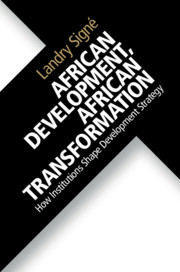
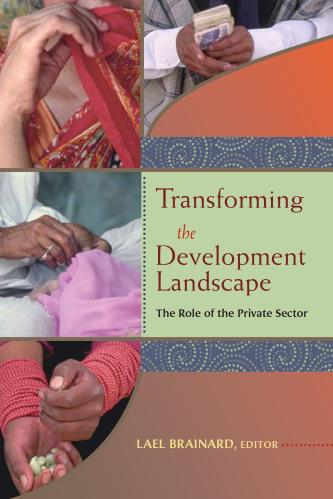

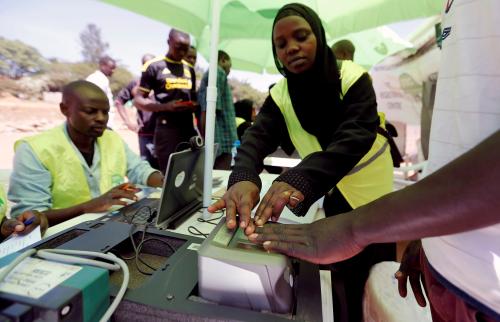
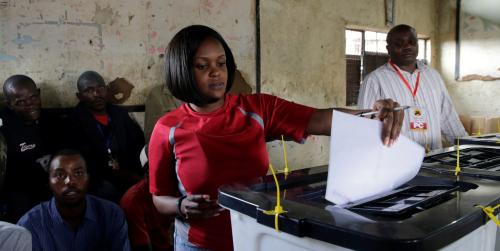


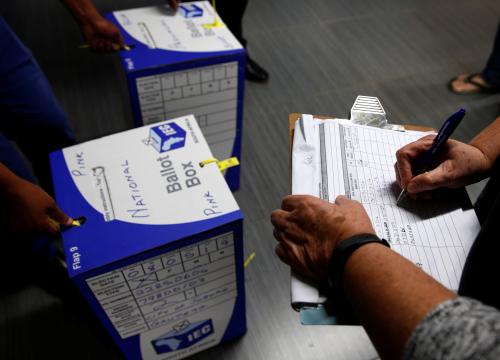
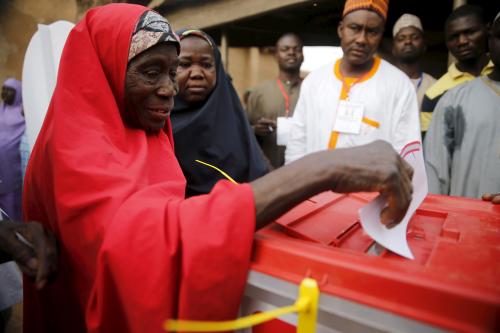

Commentary
Africa in the news: Election updates, China’s new Djibouti base, and Google CEO’s Nigeria visit
August 4, 2017